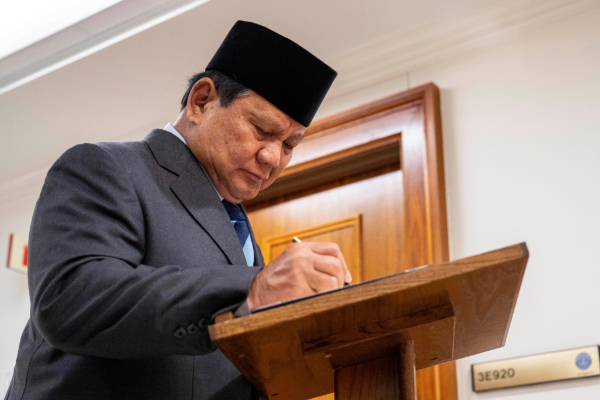Indonesia’s presumed next president Prabowo Subianto has said that he expects the economic growth to accelerate to 8% within five years.
Subianto said that he would build on the strong economic foundations laid by the current government headed by Joko Widodo.
Unofficial results have said that the former military general received nearly 60% of the votes polled in February polls.
Official results are expected this month and if the results are confirmed, Prabowo will be inaugurated as president in October.
Indonesia is one of the fastest growing markets in the world and has been at the forefront of the supply chain for electric vehicles because of the vast reserves of nickel.
The growth forecast can be considered to be ambitious considering the economy has not grown over 5% for the past decade.
His campaign promise included reform and privatisation of Indonesia’s state-owned enterprises.
Rights activists have also raised concerns about democracy under a Prabowo presidency.
Prabowo started his career in the army and graduated from the Indonesian Military Academy in 1970, before serving in the special forces and then leading the Strategic Reserve Command (Kostrad) in 1998 – the same year when his father-in-law President Suharto was forced to resign after 32 years in power. This led to a major economic and political crisis flared up with Prabowo’s father-in-law at the time President Suharto forced to resign after 32 years in power.
Suharto’s ouster led to riots. Prabowo’s command kidnapped and tortured activists and he acknowledged responsibility for kidnappings and deaths of five individuals. This resulted in his discharge from the military.
His chequered career also saw him banned from entering the US till 2020 for his alleged role in human rights abuses, including military crimes during the occupation of East Timor. The ban was eventually removed when he became the defence minister.
The ex-army man represents a continuation of the highly popular economic agenda put forth by Widodo.
















